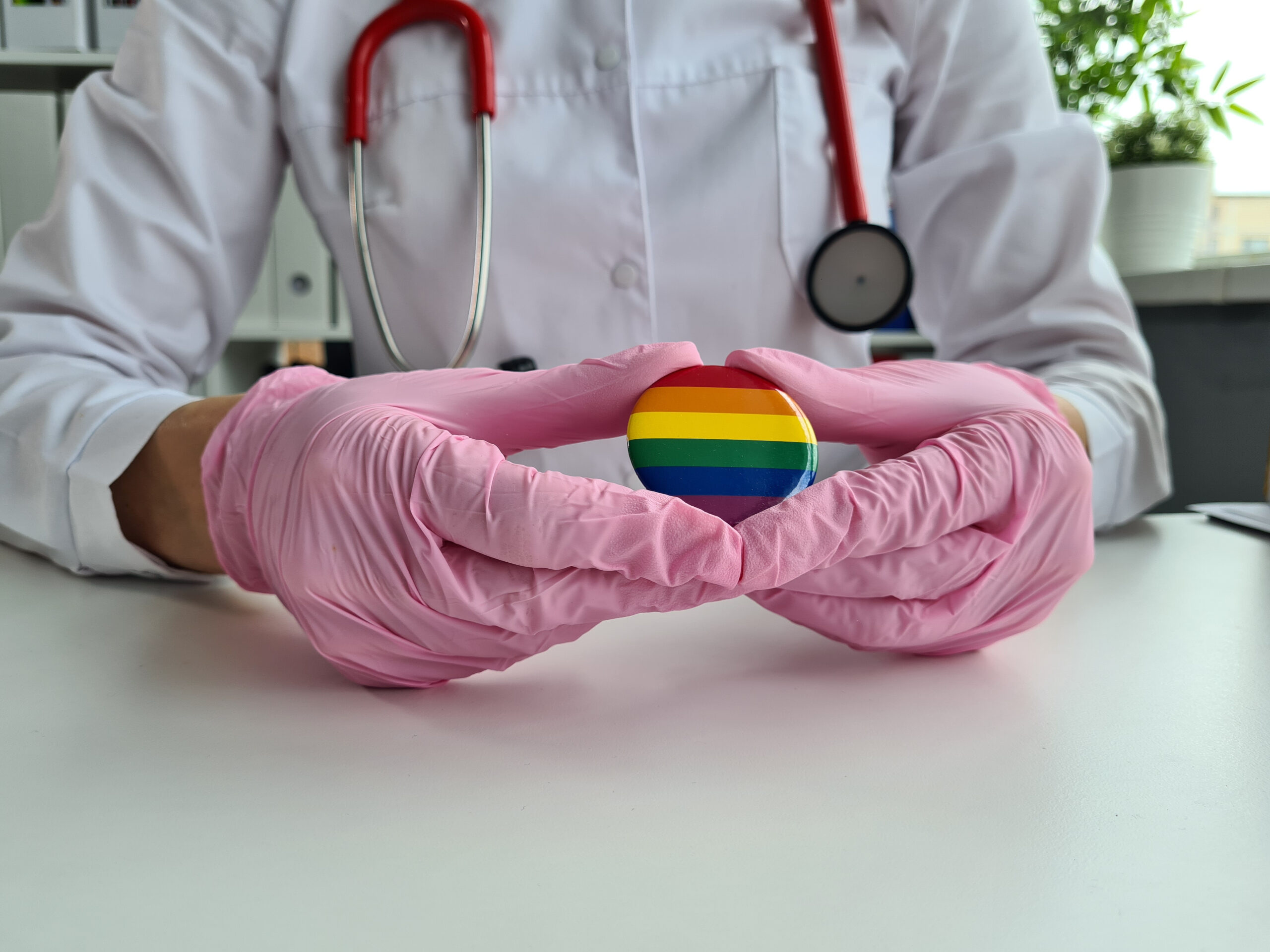LGBT+ people have always been important and contributing members of our communities, seen or unseen. Since 2005, LGBT+ History Month UK has been marked every February to recognize the history, achievements, and contributions of the queer community.(1)
This year, the theme for LGBT+ History Month is ‘Medicine #UnderTheScope,’ giving us an opportunity to raise awareness of members of the LGBT+ community who have made a difference in medicine and healthcare. How many LGBT+ scientists can you name? Perhaps you’ve heard of Alan Turing
(1912–1954), the well-known mathematician and computer scientist who was instrumental in cracking the Enigma Code during World War 2, but who also took his own life not long after being outed, or Sally Ride (1951–2012), American astronaut, physicist, educator, and advocate for girls and women in STEM, whose 27-year-long same-sex relationship wasn’t disclosed until after her death.(2,3) Today, the erased histories and identities of many queer people in STEM can be uncovered in a few clicks, and we encourage you to look into them.
Many talented LGBT+ people in medicine had profound influence in shaping the world as we know it. To name but a few:
- Sophia Jex-Blake (1840–1912), a physician and teacher who spent years as part of “The Edinburgh Seven” campaigning to secure women access to a university education and practice medicine, leading to the Medical Act which allowed UK medical institutions to qualify doctors regardless of gender(4)
- Cecil Belfield Clarke (1894–1970), a physician and civil rights activist who fought for equality of Black health professionals in the UK and developed the – misnamed – Clark’s rule, an arithmetic formula used to calculate the proper dosage of medicine for children aged 2–17(5)
- Ewan Forbes (1912–1991), a physician and farmer who underwent a dehumanizing trial to validate his gender and inherit his family’s aristocratic title, which he won, making a significant impact on the course of trans legal rights in the UK and the perception of trans identity in society(6)
LGBT+ people are our teachers, doctors, nurses, and researchers. They may be our colleagues, our clients, or the thought leaders with whom we collaborate. From contributing to the advancement of medicine to advocating for equality in our society, LGBT+ people deserve to be recognized for their achievements and respected as their true selves. Unfortunately, queer history is as bleak as it is colorful. As you might already know, LGBT+ History Month UK coincides with the repeal of Section 28, a harmful law prohibiting local authorities from teaching or talking about homosexual relationships from 1988
until 2003 in England and Wales (Scotland repealed the law in 2000), with lasting effects on
already-marginalized LGBT+ people and society.
Visibility is still a risk for LGBT+ academics in STEM in the UK and queer people are statistically
under-represented in STEM fields.(7–9) Stigma around being out at work is pervasive, and the
double-standard is real – it is often perceived as “unprofessional” for LGBT+ people to disclose their sexual orientation at work, despite heterosexual colleagues being out without issue. Once out, LGBT+ persons are more likely to experience social marginalization, harassment, and limited career opportunities compared to their non-LGBT+ peers.(10) LGBT+ people also more frequently report health difficulties and are more likely to leave STEM.(9,10)
Queer scientists carry the additional load of weighing personal safety against career opportunities; for example, work may involve travel to places where the safety of LGBT+ people is at risk. These challenges are often compounded for trans people, LGBT+ people of color, and LGBT+ people with disabilities, as well as people with multiple marginalized identities who must navigate discrimination as a result of each intersecting identity.
Increasing awareness and education about LGBT+ history and the contributions of queer individuals in science and medicine (and indeed throughout society) is fundamental to overcoming intolerance and promoting inclusion. Discrimination towards the LGBT+ community persists, and the road to equality is long. LGBT+ people need more role models, safe spaces, and recognition, in STEM and beyond.
- Schools OUT. LGBT+ History Month. Available at: https://lgbtplushistorymonth.co.uk/.
- UK: The Education Hub. LGBT+ History Month: Alan Turing and his enduring legacy. 19 February 2021. Available at: https://educationhub.blog.gov.uk/2021/02/19/lgbt-history-month-alan-turing-and-his-enduring-legacy/.
- Rosenthal M. Sally Ride. Queer Portraits in History. Available at: https://www.queerportraits.com/bio/ride.
- O’Rourke C. Queer Women in the History of Medicine: Sophia Jex-Blake and Women’s Education in Victorian Britain. University of Toronto Libraries: Thomas Fisher Rare Book Library. Available at: https://fisher.library.utoronto.ca/fisher-blog/queer-women-history-medicine-sophia-jex-blake-and-womens-medical-education-victorian.
- Tonkin T. A forgotten hero. British Medical Association. 25 May 2023. Available at: https://www.bma.org.uk/news-and-opinion/a-forgotten-hero.
- University of Aberdeen. Book Week Scotland event explores the hidden case of Ewan Forbes. 10 November 2022. Available at: https://www.abdn.ac.uk/news/16524/.
- Reggiani M, Gagnon JD, Lunn RJ. LGBT + academics’ and PhD students’ experiences of visibility in STEM: more than raising the rainbow flag. Int J High Educ
- Cech EA, Pham MV. Queer in STEM Organizations: Workplace Disadvantages for LGBT Employees in STEM Related Federal Agencies. Soc Sci 2017;6(1):12.
- Aramati Casper AM. Revealing the queer-spectrum in STEM through robust demographic data collection in undergraduate engineering and computer science courses at four institutions. PLoS One 2022;17(3):e0264267.
- Cech EA, Waidzunas TJ. Systemic inequalities for LGBTQ professionals in STEM. Sci Adv 2021;7(3):eabe0933.





